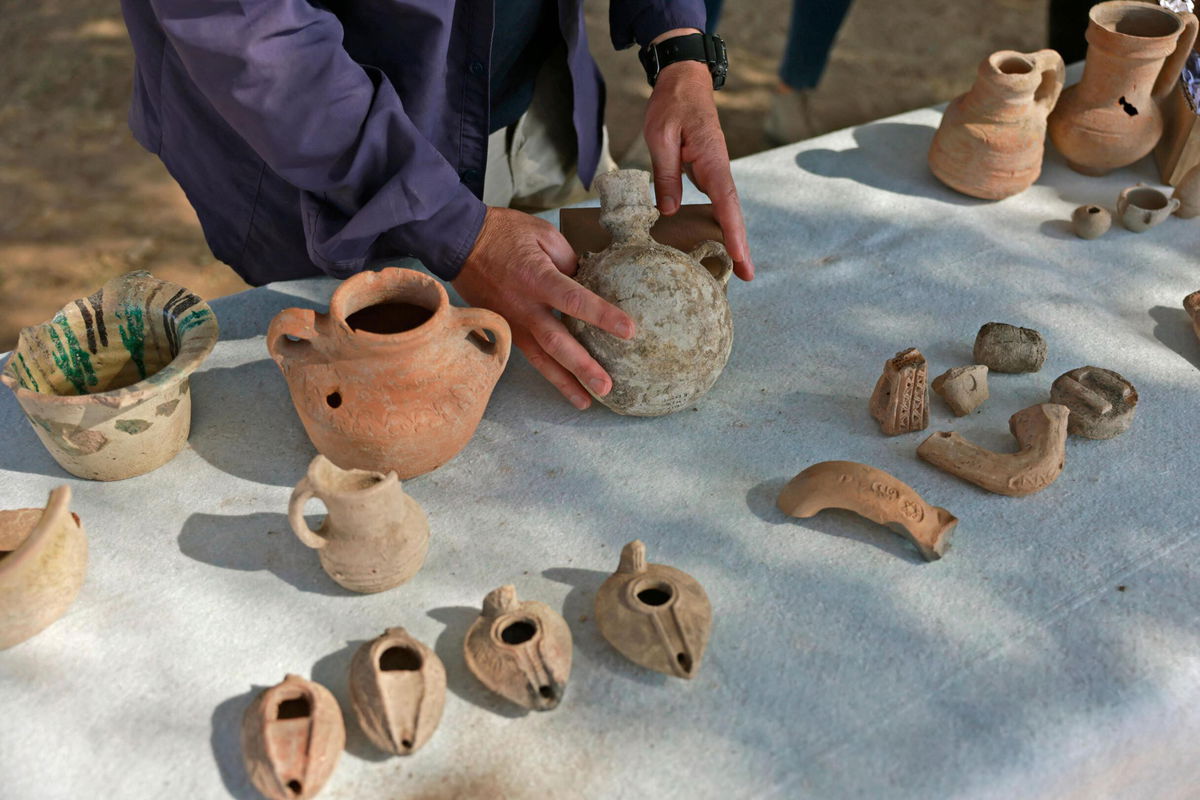World’s largest Byzantine wine factory uncovered in Israel

By Jeevan Ravindran, CNN
The world’s largest wine factory from the Byzantine period has been uncovered by archaeologists in the Israeli town of Yavne, after a two-year excavation process.
The 1,500-year-old complex was used to produce wine in huge commercial quantities, with the directors of the excavation calculating that around two million liters were marketed every year.
The site boasts five wine presses, four large warehouses where wine was aged and marketed and kilns for firing the clay amphorae — or jars — where the wine was stored.
The Byzantine Empire existed roughly between 330 AD and 1453, becoming one of the leading civilizations in the world.
“What’s really exciting is the scale. It’s the sheer scale of the production over here,” archaeologist and excavation co-director Jon Seligman told CNN Tuesday. He added that the “complexity of the architecture and of the industrial process” had come as a surprise.
He said the excavation, led by the Israel Antiquities Authority, was one of — if not the — largest in the country, with around 300 staff members working five days a week.
The directors of the excavation said the site was most likely the main production area for “Gaza and Ashkelon wine,” a famous brand of the ancient world.
From Gaza and Ashkelon, the wine would be distributed throughout the Mediterranean basin as a commercial product, they said. Seligman added that various ancient sources said it was a “light white wine.”
“It was a prestige product, which was liked by many [members] of the aristocracy during the period,” Seligman said. “For example, we know that it was preserved during the coronation of Justin II in 566 at his table during the coronation feast… And that gives an idea of the importance of this, both gastronomically but also economically to the area.”
Some amphorae, known as “Gaza jars,” were discovered intact alongside hundreds of thousands of fragments at the site. Rare Persian wine presses — older than the complex itself at around 2,300 years old — were also found at the estate.
As the entire wine production process was done manually, grapes were crushed barefoot to extract their liquid on a treading floor, which stood next to compartments where the wine was fermented and octagonal vats where it was then collected.
The excavation was completed as part of an Israel Land Authority initiative to develop the town of Yavne, and directed by Elie Haddad, and Liat Nadav-Ziv alongside Seligman.
The public has been invited to tour the site before it is closed off during the rainy season. The authorities eventually plan to preserve the complex and open it to the public as part of an archaeological park.
The-CNN-Wire
™ & © 2021 Cable News Network, Inc., a WarnerMedia Company. All rights reserved.
CNN’s Michael Schwartz contributed reporting.